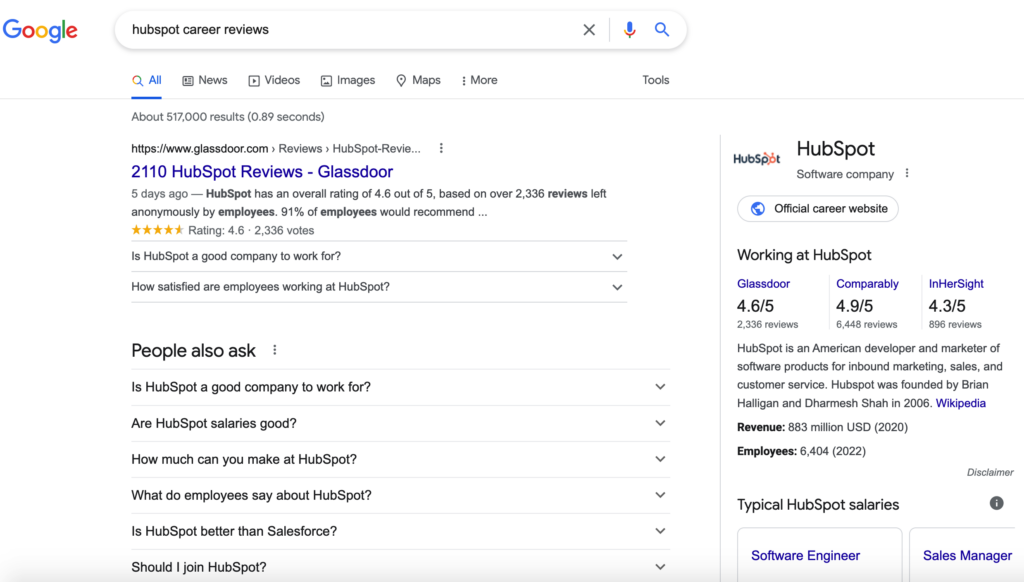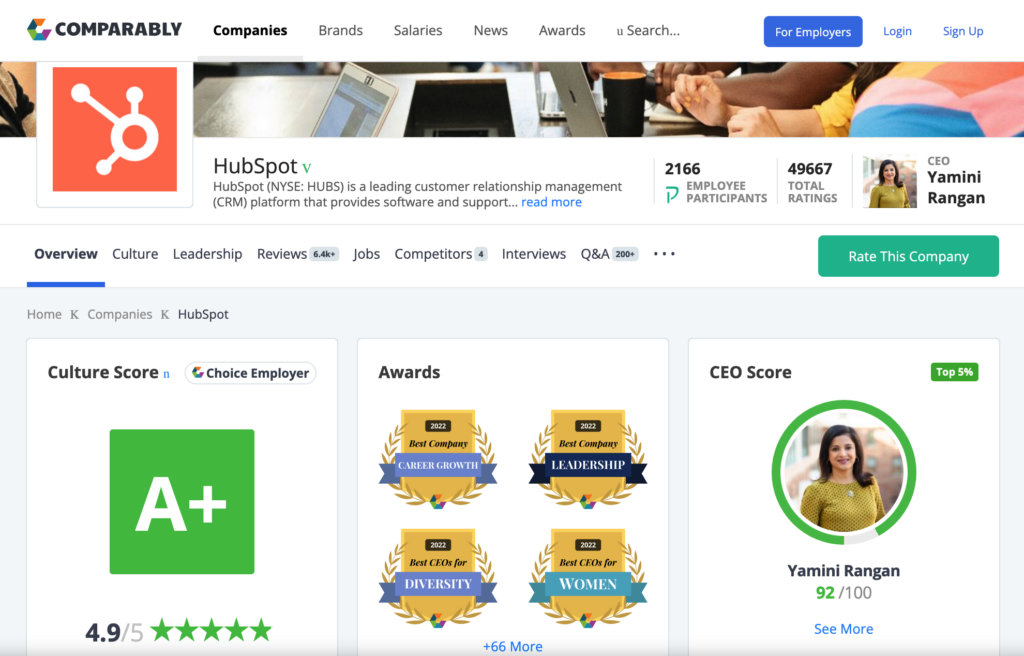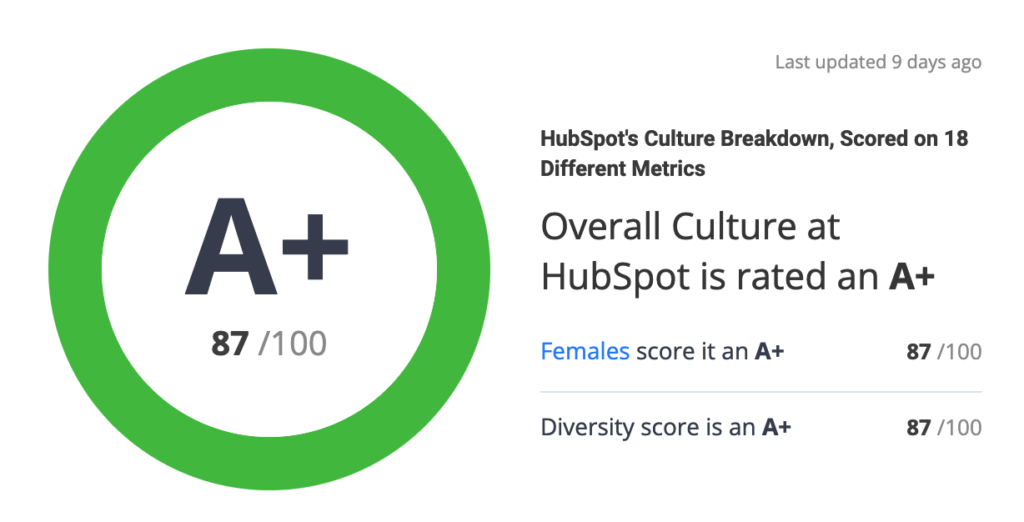It happens all the time. A new salesperson is hired, onboarded, and starts selling. But somewhere along the way, the actual experience of daily activities doesn’t quite align with their expectations. In other words, there’s been a lack of transparent hiring.
In some cases, a salesperson will carry on and make the adjustments. However, other times, they’ll end up leaving prematurely, creating a toxic turnover rate. To quantify, 48% of salespeople have left their job because it didn’t meet expectations.
And here’s the kicker. The majority of new salespeople (61%) say the job doesn’t match their expectations. Considering this is such an obvious issue, let’s take a deep dive into the importance of transparent hiring.
Some Context
First, it’s necessary to understand the current recruiting climate that today’s businesses are operating in.
We live in an age where applicants can find virtually anything they want about a potential employer. A quick look through social media or a search on Google, for example, gives them access to direct input from current employees, previous employees, or someone who has known an employee.
Just look at all the results that popped up for “HubSpot career reviews” in Google.
In seconds a potential candidate can get quantifiable reviews, see whether or not HubSpot is a good company to work for, see what employees have to say about HubSpot, and more. Some sites like Comparably are even solely devoted to analyzing companies and educating people on brands, salaries, culture, values, and so on.
While companies in the past could often paint their own picture of what it’s like to work for them and largely control the narrative, this isn’t the case anymore. Technology has put the power in the hands of candidates, which means applicants can easily sniff out any discrepancies between the image a company portrays and reality.
As Bertrand Dusser, Oracle’s vice president of human capital management transformation puts it, “the key takeaway is that when job seekers have unprecedented access to insights about a workplace, they also develop an extremely low tolerance for blatantly promotional messaging and gaps between what an organization says about itself and what’s being conveyed online.”
When you combine the ease in which sales candidates can find company information, how inconsistencies can hurt the employee experience, and how likely salespeople are to leave if a job doesn’t match their expectations, transparent hiring has arguably never been more important than it is today.
In fact, “96% of job seekers say that it’s important to work for a company that embraces transparency.” And how can you blame them? It’s almost guaranteed to be disappointing if they’re excited to join a company that seemingly checks all the boxes but underdelivers in the end.
Reasons for the Discrepancy
The fact that 61% of new salespeople have joined companies that don’t align with their expectations shows just how pervasive a lack of hiring transparency is. But what are some of the exact reasons for it?
- 59% say it’s because of a discrepancy in job responsibilities
- 42% say working environment
- 35% say work hours or shift patterns
- 29% say salary or benefits
The Advantages of Transparent Hiring (Besides Lower Turnover)
Perhaps the number one reason to embrace transparent hiring is increased retention. When the day-to-day activities of a job match what a salesperson expected, they’ll naturally be inclined to hang around longer. And when you hire elite sales reps, this is vital to building a strong foundation and thriving in your industry.
Also, note that younger salespeople have a lower tolerance for discrepancies. More specifically, “a higher percentage of Gen Z respondents (73%), those aged 18 to 24, reported leaving their job for not meeting their expectations.” So transparent hiring is especially important if you’re looking to recruit young professionals fresh out of college.
But it goes much deeper than that. Another key benefit is the overall increase in candidate quality that transparent companies tend to get. “Research shows that organizations often see significantly higher-quality applicants if they manage their employment brand effectively,” writes Forbes. “One explanation is that transparency helps candidates make better decisions about which organizations suit them best.”
There’s also the matter of increased trust. When a position matches what a new sales rep expects, it sets the stage for trust right off the bat. That way a salesperson can settle in without unnecessary friction and they know they’re in good hands working for a company that delivers on promises. This, in turn, can increase morale, raise employee satisfaction, and boost overall performance.
Finally, hiring transparency can increase brand equity. With social media and career sites distributing employer information at lightning-fast speed, word gets around in a hurry. If a company gains a reputation for hyping up its sales positions but chronically falls short where reps are profoundly disappointed, it’s going to harm its reputation. Conversely, setting the right expectations where a company paints a crystal clear picture and delivers should result in consistently happier reps that sing the praises of their employer. And that’s always a recipe for improved brand equity.
When you look at it from different angles, it’s clear that transparent hiring is a win-win for salespeople and the companies hiring them.
Transparent Hiring: Closing Thoughts
While I wasn’t surprised that not all sales positions perfectly aligned with candidate expectations, I was surprised that it was so common. With more than 6 out of every 10 sales reps saying a job didn’t meet their expectations, this is a major problem where many companies are falling short.
That’s why hiring transparency is something I highly recommend analyzing and identifying areas for improvement. For advice on this, I suggest reading this quick guide from Villanova University, as it provides an easy-to-follow checklist.
And if you’re looking to fill your talent pipeline with leading salespeople in your industry while drastically reducing hiring inefficiencies, check out HireDNA. This platform uses cutting-edge technology like intelligent matching and science-based assessments to find the cream of the crop and eliminates 96% of hiring mistakes.



